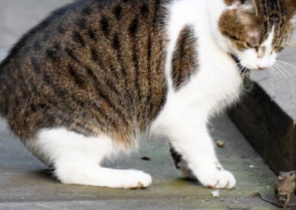Given what we know about other viruses, we need to form immunity against a new coronavirus SARS-CoV-2, experts say.
“Yes, for now we can only say that we hope — says immunologist and Professor of anatomy at the University of Oslo Anne Spurkland (Anne Spurkland). — We still have not enough information to say something more specific. But I see that on this occasion there is doubt.”
A study conducted in Shanghai, about which he wrote, for example, VG, showed that one third of all tested had low levels of antibodies after the disease. In some cases, antibodies in the blood to detect does not succeed.
Also earlier in April, the Department of health of South Korea reported about the positive analysis of coronavirus 163 people, who already had covid-19 and was declared cured.
“To respect the same safety rules”
Because still there is some uncertainty, the health Department wants those who are already sick covid-19 and recovered, still followed all the recommendations to prevent the spread of infection.
“Studies show that many people after an illness in the blood is not antibodies. So while there is no way to issue certificates that they have been ill and are now immune to covid-19”.
Here’s what on behalf of the Directorate of health says a doctor and specialist in the protection against infection Heeg Svein Henriksen (Svein Høegh Henrichsen).
“We must consider the possibility that the person is able to get sick and a few times, continuing to transmit the virus to others. Therefore, even if the person recovered from covid-19, it should comply with the same safety rules the rest”.
This means that you need to keep a distance of two meters from other people and not to meet in groups of more than five people. This does not apply to those with whom you live in the same house.
Can persist for life or just for a while
So can we count on the immune system refresher covid-19? We have discussed this issue with four experts.
Immunologist and lecturer at the University of Oslo tune Fredsvik Gregers (Tone Fredsvik Gregers) said that in General, immunity can last a lifetime, and only a short period. Depends on what pathogen you have been infected.
If you were ill with measles or rubella, the immunity will last a lifetime. But immunity to whooping cough only lasts so long.
“There are two ways to find out or did you have the coronavirus,” says Gregers, which, among other things, wrote a book called “Everything you need to know about vaccines” (Alt du må vite om vaksiner).
To find out whether you are infected now, you need to look for in your blood the genetic material of the virus. To understand hurt you before, you can make the analysis on antibodies. They signal that the immune system responded to the infection.
Prevent the virus to enter the cell
On the surface molecules of coronavirus spikes, which he uses to penetrate into cells. It binds to a receptor called ACE2.
The virus has to enter the cell to begin the reproduction process, explains the Tur Brynjar the Stug (Tor Brynjar Stuge), researcher and Professor of immunology at the Norwegian Arctic University.
“Antibodies cover the spikes of the virus, which because it physically can’t dock with molecules on the cell surface,” he explains.
The immune system tries to produce antibodies during combat coronavirus infection.
“Develop different antibodies that work not only against the spikes of the virus. But the ones that do not allow him to enter the cell, really protect us,” says the Stug.
The first antibodies to disappear in a few weeks
You can catch flu again and again, because the flu virus changes very quickly. And in this case, the prepared body’s antibodies no longer work.
In addition, you can get a virus, if the immune system “forgot” it.
“By themselves, antibodies are just proteins that circulate in the blood stream. After a few weeks they can degrade,” says tune Fredsvik Gregers.
Therefore, it is necessary to form so-called memory cells. Thanks to them, the antibodies can continue to develop throughout life, providing long-lasting protection.
“Memory cells can persist for short or long term,” says Gregers.
It this depends on how lengthy your immunity. If you will be again under threat, it prostimulirujte memory cells and start to produce new antibodies.
“But if you long time do not come into contact with the virus, memory cells are gradually becoming smaller, as the cells responsible for the production of specific antibodies. In any case, the number of antibodies in the blood is constantly reduced.”
Presumably, memory cells after covid-19 is
If for some reason the memory cells is not formed, the immunity would last only a couple of weeks, sums up Gregers.
“In this case he will rely only on those antibodies that have developed in the first reaction of immunity”.
Could it be coronavirus? Gregers believes that this is unlikely. She was not aware of any virus, the reaction to which would have been otherwise generated memory cells.
“I’m sure that these cells are produced, but it remains unclear how long they live.”
Other coronaviruses can give a hint
In addition to SARS, MERS and SARS-Cov-2, there are at least four coronavirus. They are behind 20% of all colds and rarely result in any serious disease.
Not many studies have been devoted to immunity against coronaviruses that cause colds, says chief doctor of the Institute of public health Anna-March Bakken Crane (Anne-Marte Bakken Kran).
“Judging by how they behave in different regions, it seems that people have to them a kind of collective immunity, otherwise we dealt with them much more often. But this immunity is probably rather short, although antibodies to it and discovered,” says Crane.
It’s not like the person develops lifelong immunity to these non-hazardous types of viruses, although they do not change as much as the flu virus.
In the study, 1990, fifteen volunteers were infected with coronavirus. After a year, fourteen of them again entered the same virus. Someone called in sick again, but with very mild symptoms.
“Refresher respiratory virus, you only for a while remain relatively protected. I’m talking about a year or two. This is what we know about seasonal coronaviruses,” said Professor infectious diseases Medical center, University of Rochester Ann Felsi (Ann Falsey) is an American radio station KCUR-FM.
Also antibodies to the SARS and MERS
The study, published on the website Medrxiv.org in the course of which he studied the doctors who recover from SARS, shows that although the level of antibodies in their blood has decreased for the first couple of years, yet they can be detected even after 12 years.
In another study, published in Emerging Infectious Diseases, antibodies in the blood ill with middle East respiratory syndrome was discovered three years after recovery. However, scientists do not know enough of them to prevent re-infection.
“I want to believe and hope that the immunity to SARS-CoV-2 will last at least a couple years if people will not be too heavy viral load, says Gregers. — In the coming years, more and more people will acquire immunity. If the virus does not disappear completely, and we will from time to time be subject to his influence, the immune system will naturally become stronger and stay longer, because the memory cells are permanently activated. Thus we are to some extent achieve herd immunity among the population, but it takes time.”
Not only antibodies
Spurkland read a study from Shanghai, which says that one-third of the subjects had very little or no antibodies against coronavirus in blood. Does this mean that the immune to it they don’t have? And whether, if there are antibodies, then the person is immune to the virus?
“In General, antibodies mention to say something about the immune system,” says the Professor.
If you have antibodies to the virus, so immunity to it.
“This is the optimum goal that we can deliver, wanting to test a large number of people and not wasting too much energy. Then we have to assume that antibodies the body is protected from re-infection. But it is possible that the symptoms will appear again. However, if this virus behaves the same as the others, at least the second time you have been ill is not severe”.
Matters is not only the antibodies.
“In the blood can be stored white blood cells, white blood cells, which played a major role in recovery and that we don’t measure”.
This is also evidenced by Anna-March Bakken Crane from the Institute of public health.
“There is no certainty that only antibodies that we now measure give protection. Besides these, there are cellular immunity, which in these tests is not taken into account”.
“The only thing that helps with certainty to find out whether a person has immunity or not, that if he gets sick again, says Spurkland. — I believe that we need to remain calm and to wait.” She recalls that the disease is known for only four months.
It seems that the virus stays in the body longer than usual
There are instances when the analysis of the coronavirus was positive after the person was declared healthy. But this does not mean that he actually got infected for the second time, explains Spurkland.
“I think the fact that this disease develops on many weeks longer than we expected,” she says.
While the flu you usually recover in a week or two, covid-19 appears to have a much longer disease. You can feel better, and then the condition will deteriorate again.
“Usually, if a person infected with the virus, the first week the immune system just adapts. Have to recover with the temperature, and the like. For the second week in a case involving antibodies and white blood cells, and you are gradually getting better. But if someone you know is sick with coronavirus, wait until he recovers, will likely have a very long time”.
Spurkland believes that if someone after recovery were tested positive for the coronavirus after a previous negative, it is rather a problem of the testing system, not the immune system, as it may seem.
“I guess this means that you need really a lot of time to get rid of the virus and gain immunity, and this is a slightly different story”.
Anna-March Bakken Crane also believes that it is more likely from the immunological point of view.
“That often happens. We know that some people in the blood there is a small amount of the virus, but they are not necessarily contagious. This figure may be just on the border of the minimum value, which shows the analysis. And so can last for quite a long time.”
Less likely to acquire immunity, if the disease is passed in the form of light?
Many wonder: “what if she’s sick in the form of light and almost no symptoms, and immunity did not earn?” This, for example, writes in The New York Times epidemiologist and infectious disease specialist mark Lipsitz (Marc Lipsitch).
Tune Fredsvik gregers believes that in the future it is very important to study.
Anna Spurkland says that in fact no connection between the intensity of symptoms in viral infection and the formation of immunity should not be.
“There is no direct connection here, in theory, no. Can to produce sufficient amounts of antibodies and a vaccine. And in this case the symptoms are very mild, if any”.
“The symptoms — the result of the fact that the immune system is hard at work to cure you. They show how much work she has to do, but show good future immunity”, — assured Spurkland.
Whether there will be a virus in the body?
There are examples of viruses from which we can not fully get rid of. For example, herpes viruses remain a carrier for life, and symptoms may occur periodically, when the immunity is weakened.
Hepatitis B is an example of a virus that can result in various diseases, and some are asymptomatic while others cause severe inflammation of the liver. Someone becomes a chronic carrier.
“In the case of this virus, the disease can occur in very different ways. Perhaps with the coronavirus situation is the same. But actually, in my opinion, it doesn’t seem right,” says Spurkland.
Some suggest that the virus will in subsequent years be distributed in waves, because, apparently, immune to it persists only for a short time.
“Now I’m a little worried. I think it will be a bit like the flu. We will have some immunity to that moment, everything starts again, he will not have time to disappear completely. It is certainly not as good as the first, but still the disease will not be so heavy.”
When you see the analysis on antibodies?
Many countries are now trying to organize mass testing for antibodies among the population. So we will be able to learn more about how actually the disease spread, and also get more information about the immune system.
Anna-March Bakken Crane told earlier that the Institute of public health has ordered these tests and is now assessing them.
“And the Institute of public health, and others are now working microbiological laboratory test and verify their purchases these antibody tests”.
The problem is that the whole world wants to get out now, she says. “So there may be difficulties with the speed and regularity of supply”.
“The most exciting initiative belongs to the hospital of the University of Oslo. In its immunological Department developed a system of detection antibodies based on several different principles than others. This is a very promising project”.
Crane expects that in Norway, tests for antibodies will take a couple of weeks.
Immunity to norovirus is short
Crane also believes that, based on what scientists know about other viruses and immunology, most likely there is reason to believe that immunity after infection by the coronavirus, we do formed.
Forskning: are There any viruses after infection, which do not receive immunity in the near future?
Anna-March Bakken Crane: the Norovirus is known that immune to it are very short.
Norovirus causes stomach flu.
If you’re out of luck and you get sick at the beginning of the outbreak of norovirus, you can even have time to recover again before it will come to naught.
However, the main reason is not even that immunity is very short, and the fact that the virus constantly mutates a little, says Crane.
“Probably in a couple of months after the illness you will not have immunity even against exactly the same virus that you are ill.”
Unlike influenza virus, coronavirus “adjusts” when you copy some errors, and therefore, does not change as quickly, although some mutations still occur. So far, the virus looks relatively stable, according to the article on the website of the American NPR.
Whether the person can contract the virus and do not develop immunity?
So can a person be ill and recover without developing any immunity?
“No, that was very unusual,” answers Anna Spurkland.
The same can be said researcher and teacher of immunology Tour Brynjar the Stug.
“That sounds very strange. You just need a good immune response to recover from a viral infection”.
He had not heard of any virus that the human immune system could not fight back. But there are examples of such bacterial infections.
“If the person had tetanus, as a rule, no protective antibodies in his blood there. Toxins secreted is so small that the immune system does not give a confident answer.”
But he didn’t think that something like this can touch the coronavirus.
“In my opinion, if the immune response is bad, it most likely means that the person from the virus is not disposed of”.
Tune Fredsvik Gregers said sums up, saying that she was “almost sure or absolutely sure” that the immunity to coronavirus is produced.
“If you were sick covid-19, obviously, you have some immunity, though it is unclear for how long”.







